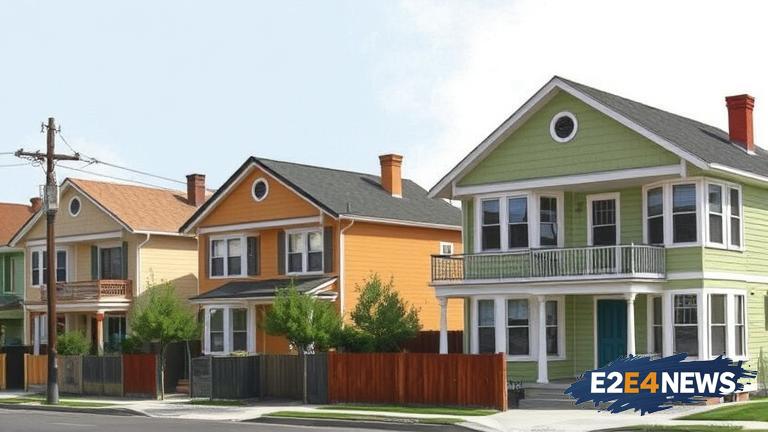In a shocking move, California Governor Gavin Newsom and Los Angeles Mayor Karen Bass have declared a de facto martial law on the construction of duplexes in the affluent neighborhood of The Palisades. The decision has sent shockwaves throughout the state, with many residents and developers expressing outrage and disappointment. The new regulations, which effectively ban the construction of duplexes in the area, have been touted as a necessary measure to preserve the character and charm of the neighborhood. However, critics argue that the move is a blatant example of NIMBYism, with wealthy homeowners using their influence to dictate zoning laws and restrict affordable housing options. The Palisades, known for its picturesque views and high-end real estate, has long been a bastion of exclusivity and privilege. The introduction of duplexes, which would provide much-needed affordable housing options, has been met with fierce resistance from local residents. Newsom and Bass, both Democrats, have faced criticism for their role in imposing the regulations, with many accusing them of pandering to the interests of wealthy donors and constituents. The move has also sparked concerns about the impact on the state’s already dire housing crisis, with many arguing that the restrictions will only serve to exacerbate the problem. Despite the controversy, Newsom and Bass have remained resolute in their support for the regulations, citing concerns about traffic, parking, and the overall quality of life in the neighborhood. However, many experts argue that these concerns are overstated and that the real motivation behind the regulations is to preserve the area’s exclusivity and property values. The decision has also raised questions about the role of government in regulating land use and zoning laws, with many arguing that the state and local authorities should prioritize affordable housing and density over the interests of wealthy homeowners. As the debate rages on, it remains to be seen how the regulations will impact the state’s housing market and the lives of Californians. The move has also sparked a wider conversation about the need for affordable housing and the role of government in addressing the crisis. With the state’s housing market continuing to spiral out of control, many are calling for more drastic measures to address the issue. The introduction of duplexes in The Palisades was seen as a small step towards addressing the crisis, but the new regulations have effectively put a halt to those plans. The decision has also raised concerns about the impact on the local economy, with many arguing that the restrictions will stifle growth and development. As the situation continues to unfold, it remains to be seen how the regulations will be received by the courts and whether they will be upheld. The move has also sparked a backlash from developers and builders, who argue that the regulations will make it impossible for them to build affordable housing in the area. The controversy has also highlighted the need for more inclusive and equitable zoning laws, with many arguing that the current system prioritizes the interests of wealthy homeowners over those of low-income and marginalized communities. The decision has also raised questions about the role of local government in addressing the housing crisis, with many arguing that cities and counties should be doing more to prioritize affordable housing and density. As the debate continues to rage on, it remains to be seen how the regulations will impact the lives of Californians and the state’s housing market. The move has also sparked a wider conversation about the need for more affordable housing options and the role of government in addressing the crisis. With the state’s housing market continuing to spiral out of control, many are calling for more drastic measures to address the issue. The introduction of duplexes in The Palisades was seen as a small step towards addressing the crisis, but the new regulations have effectively put a halt to those plans. The decision has also raised concerns about the impact on the local economy, with many arguing that the restrictions will stifle growth and development. The controversy has also highlighted the need for more inclusive and equitable zoning laws, with many arguing that the current system prioritizes the interests of wealthy homeowners over those of low-income and marginalized communities.
